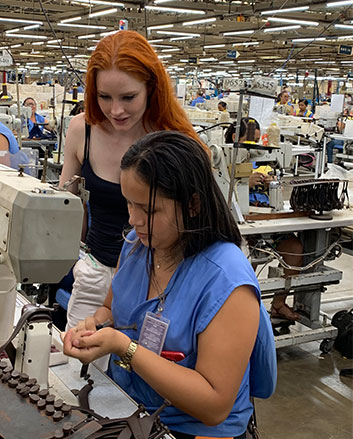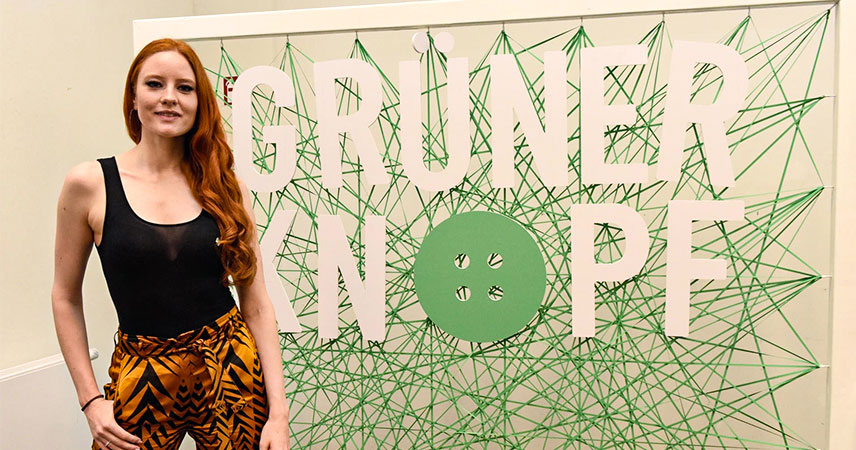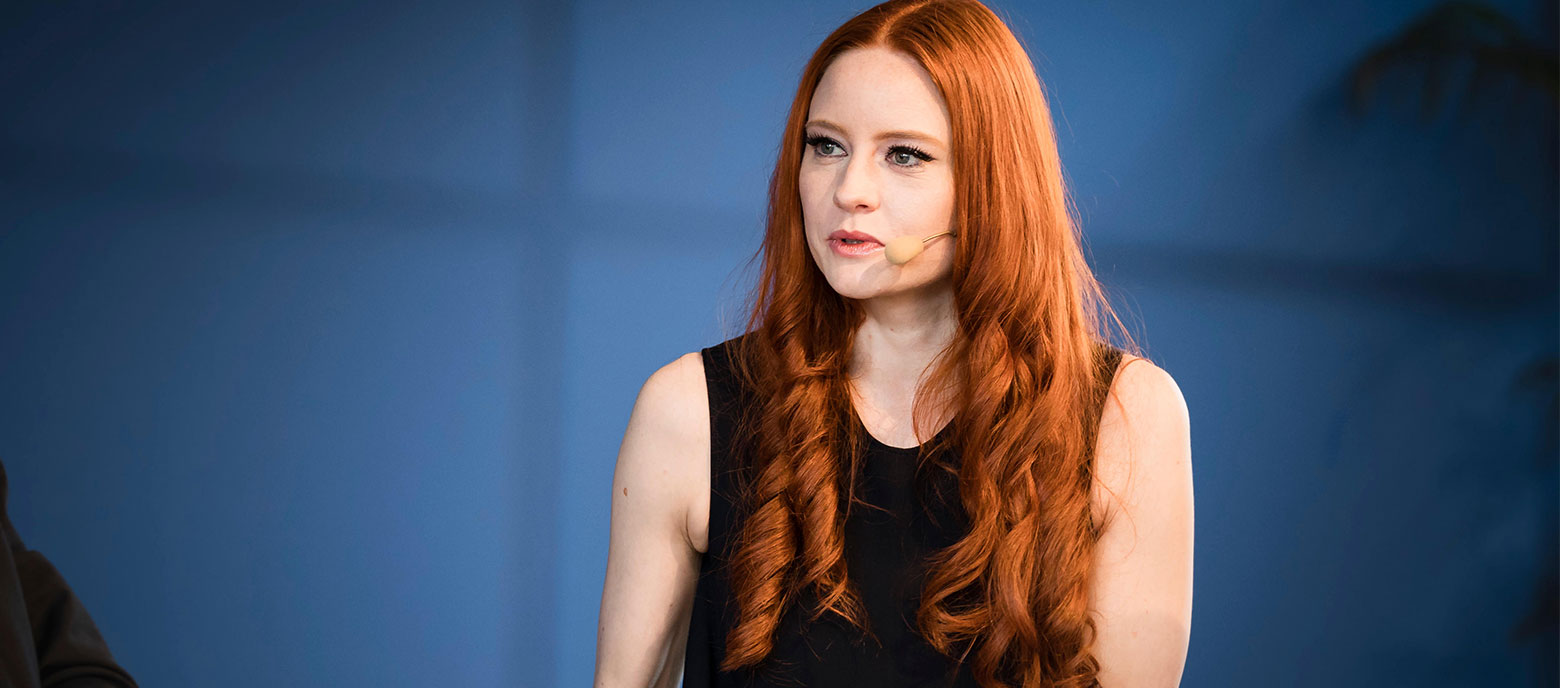Interview
‘Germany needs to lead by example’

Ms Meier, why is sustainability important?
Sustainability is important in all areas of life, including fashion. I grew up in a rural area on the outskirts of Amberg, and have felt a close bond with nature since my childhood in Bavaria. My parents taught me many lessons now considered to be part of the ‘new trend’ in sustainability, such as avoiding the use of plastic packaging and not throwing food away.
What does sustainability mean in the fashion industry?
We think of fashion and clothing as being beautiful. But it’s actually a very murky industry which employs millions of seamstresses in absolutely appalling conditions, so environmental standards and human rights are a massive issue. When I began campaigning, I was shocked at just how little of the conversation in fashion centred on those issues. We now have some great initiatives, developed by small German labels and international companies alike, which have already been a significant force for good in these areas. New materials are being tested: you can now get rhubarb-tanned leather or bags made from apple scraps, for example. There’s also the new Supply Chain Act, which aims to ensure transparency in terms of where materials are sourced. That said, there’s still a lot to do.
What concrete steps are you taking to promote more sustainable fashion?
I talk to businesses and explain the values of the Green Button so that they know how to meet the criteria for the label in future. I also give interviews and am active on social media, which allows me to reach a wider audience. I want to help people realise that fashion isn’t a throwaway product. We didn’t just replace items of clothing when I was a child; rips and tears were mended, and clothes were handed down. But now there are teenagers who’ll buy a really nice set of clothes for a party and then just throw them away the next day. That really appals me. But that’s not all: the quality of today’s clothing is often so poor that it’s ready to be thrown away after only the tenth wash.

What needs to change?
We’re going to need to further reduce our consumption. It goes without saying that this will be difficult for manufacturing countries to take, as it will reduce the demand for their goods. One way to compromise here would be for them to focus on producing more high-quality products. Instead of purchasing 10 cheap T-shirts, consumers should choose to buy one high-quality garment, even if doing so might cost a little extra. This would also mean that seamstresses could be paid more fairly.
Have you had the opportunity to visit manufacturing facilities in the Global South?
Yes, we visited projects in Ethiopia and Pakistan before the coronavirus pandemic and saw a lot of positive progress. Factories in which women are hit or emergency exits are blocked don’t exactly open their doors to visitors anyway, so I didn’t encounter anything terrible like that.
What stuck with you the most from your travels?
During one visit, I was surprised to hear that workers were actually being paid the legal minimum wage. ‘That’s great news,’ I thought – until I spoke to some of the women and found out that the minimum wage is so low that it’s impossible to make ends meet, even after the standard twelve-hour work day. I was also astonished by how much work is still done by hand. I had no idea that sequin dresses are hand-stitched and that behind each T-shirt is a woman with a sewing machine.
Can sustainable production help to get manufacturing back up and running after the COVID-19 pandemic?
I’d like to think that the break in production caused by the pandemic will lead to more sustainable production processes in the textile sector and result in more sustainable business practices on the whole. But I have my doubts, it must be said. Consumption is so central to our fast-moving world, and sustainability is always the more complicated, taxing and expensive option.
What role will the Supply Chain Act and the Green Button label play?
We have to take more responsibility for the way in which clothes are manufactured. That’s why it’s good that we’re trying to use a law to increase transparency in supply chains. We in Germany need to lead by example. The Green Button is great because it’s a government-run label and, as such, carries a lot of weight. It makes it easier for consumers to choose what to buy.
Do you get the impression that something fundamental has changed in the fashion industry when it comes to sustainability?
Labels – including the big brands – are releasing more and more sustainable lines. Some say there’s a lot of greenwashing involved. This means that some companies still mainly produce clothes under terrible manufacturing conditions while having one specific sustainable line. But even that’s a small step in the right direction. Producers may expand their range of sustainable products if the line sells well, or may even switch their entire operation to sustainable manufacturing over time.
What about consumers?
Nothing will change on the market if consumers don’t exert any pressure. But the last thing you want to do is to overwhelm people. It’s more realistic that a consumer will buy one sustainably made T-shirt or set of pyjamas rather than invest in a full wardrobe’s worth of sustainable clothes. That’s still a small bit of progress which you can build on. If 80 million Germans all take that first small step, we’ll already have come on in leaps and bounds.
Model Barbara Meier (35) is a textile ambassador for the Green Button label. She campaigns for clothing manufacturers to switch to socially and environmentally responsible production processes. The Green Button is Germany’s first government-run certification label, and was developed by the Federal Ministry for Economic Cooperation and Development (BMZ).
Meier has years of experience in the fashion industry and gained huge popularity in 2007 after winning Heidi Klum’s TV show Germany’s Next Topmodel.
November 2021
